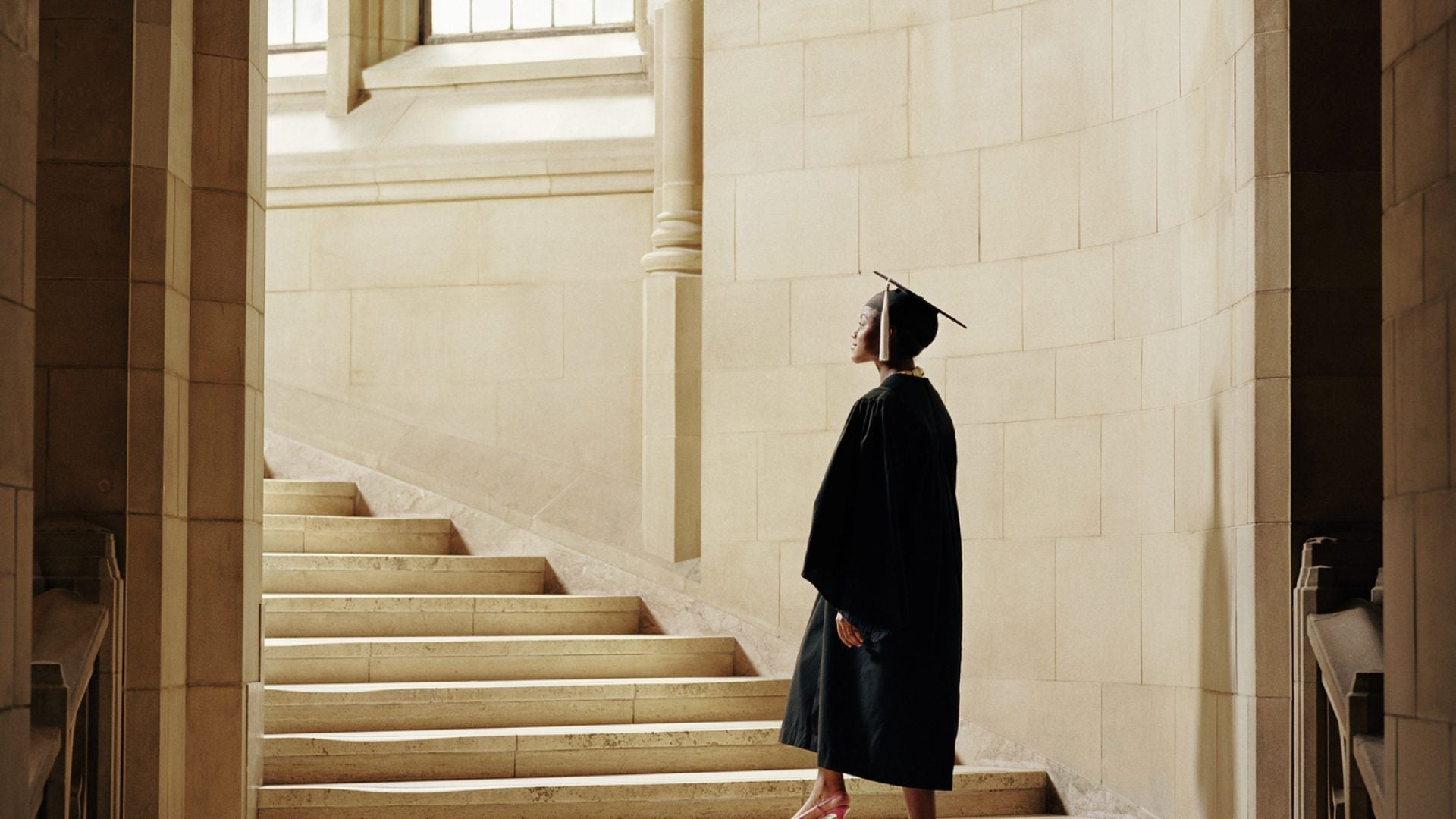
It almost feels like the Supreme Court has declared a war against Black women given some of their high-profile decisions against reproductive rights, student debt cancellation, and affirmative action over the last two terms.
It’s worth noting that Black students have only been allowed into Ivy League in the past 55 years, and “[t]he decision to repeal Affirmative Action programs in higher education is an attempt to delegitimize the admission of Black students into elite universities,” writer Marley Davis shared in Rolling Stone. “It suggests that spots are ‘taken’ — and not earned — by students, even as history tells us that when any Black student makes it into an elite school, it is in direct defiance of the years of oppression and exclusion of Black Americans from educational spaces.”
As the decision to end affirmative action is bleeding over into employment and other areas of life, ESSENCE sat down with education policy expert Jasmine Bolton to discuss her personal experiences, the value of affirmative action and how we can leverage existing resources to protect and expand diversity.
A graduate of Harvard University and Columbia Law School, Bolton previously served as Senior Counsel in the Office for Civil Rights in the U.S. Department of Education.
When asked about her thoughts on the Supreme Court’s decision to overturn affirmative action, Bolton explained, “it’s personal for me and my classmates and in a way that I don’t think other people quite recognize. It’s really easy to talk about it…as a theoretical question. You never know what goes into the decision-making behind your admission. But, assuming that affirmative action did play a role in my admission, it was a factor among many. And it’s kind of hard to reconcile what my life would look like, what I would look like, who I would be, without this policy.”
Even if you do not have a child in [a school] district, know who is running for these positions, who is being appointed for positions, and demonstrate interest and care so that we are not ceding control of our school districts and our school boards to people who don’t have a commitment to public education.
– Jasmine Bolton, education policy expert
What did Bolton do when confronted with accusations of being admitted because of affirmative action? Simply put, she knew she deserved to be there.
This, she says, contrasts conservative Supreme Court Justice Clarence Thomas, who has worked to limit Affirmative Action throughout his time on the bench.
“He took the seat of Thurgood Marshal, an iconic civil rights icon, the architect of Brown v. Board litigation. When given this platform, this is what Thomas has chosen to do with that, and a beneficiary of affirmative action himself, he seems to have let insecurities from other people undermine the value of the program.”
Bolton added that “we’ve all had that question thrown at us about whether we deserved to be in any of the spaces that we take up. And as we are now seeing, you don’t hear that from people who maybe got in because they are a legacy, or somebody made a [large] donation, you don’t hear that same insecurity from them.”
While the outlook may seem bleak, the obstacles are not insurmountable.
Bolton’s primary advice is to think hyperlocal, given that our “education and public school systems– whether they are primary, secondary, or post-secondary– are really at the forefront of a lot of cultural spark points right now.”
“One thing that everyone can do– and what those opponents of diversity and equity in schools are doing quite well– is really being engaged with your school board,” she added.
“Even if you do not have a child in that district, know who is running for these positions, who is being appointed for positions, and demonstrate interest and care so that we are not ceding control of our school districts and our school boards to people who don’t have a commitment to public education as an institution or a public good. This is what we’ve seen happen in far too many districts.”
Bolton also commented on the significance of affirmative action as it relates to diversity. “That has been the precedent for the decades leading up to this recent decision,” she shares. “But there is a history in this country of depriving people access by virtue of their race, and it is not far removed [from where we are now].”
Toward the end of our conversation, Bolton relayed an anecdote about generational triumph.
She recalls how one of her grandmothers “gave a toast [at her graduation] in which she talked about how much it meant to her to see me at this point, and how much it would have meant to her parents and grandparents, to be at a place that none of them could have ever even imagined.” She added that “hearing my grandmother talk about her grandmother who had been enslaved, and how proud that she would be of both of us, for the journey that I was on, has stuck with me for almost 15 years. I carry it with me still, and at every step that I take, I think about that legacy and that impact. And that’s what affirmative action was able to do…for us as a community, and as a country.”